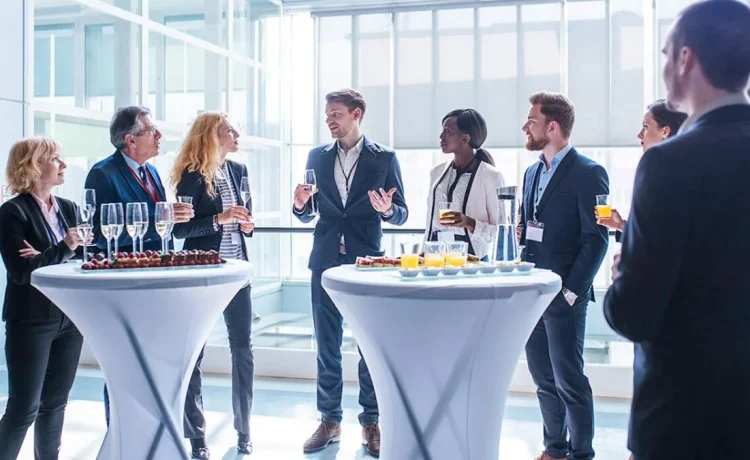A corporate event planner Singapore operates within an environment that bears remarkable similarities to a living organism—a complex, adaptive system where numerous specialised components work in orchestrated harmony to create something greater than the sum of its parts. Like cellular structures that have evolved over millennia to perform specific functions, these professionals have developed unique capabilities that allow them to navigate the intricate ecosystem of Asia’s premier business hub, transforming abstract corporate visions into tangible, multisensory experiences that alter perceptions and catalyse change.
The Evolution of Event Architecture
The metamorphosis of Singapore’s event planning industry mirrors the evolutionary process that Darwin so meticulously documented—adaptation driven by changing environmental pressures. What began as simple logistical coordination has, through selective pressures and market demands, evolved into a sophisticated discipline blending behavioural psychology, spatial design, and technological integration.
“Singapore’s event planning ecosystem has undergone a remarkable specialisation process,” observes Dr. Lim Wei Ting, who studies organisational behaviour in corporate settings. “What we’re witnessing is analogous to tissue differentiation in complex organisms—specialists who have developed highly refined capabilities for specific event functions while maintaining the ability to communicate seamlessly with other components of the system.”
The Cellular Structure of Event Excellence
Like the invisible cellular machinery that maintains our physiological homeostasis, the systems that underpin successful events remain largely unseen by attendees yet are essential to their experience. These include:
- Risk management protocols that anticipate and mitigate potential disruptions
- Regulatory navigation through Singapore’s comprehensive but efficient governance systems
- Supply chain orchestration across a network of specialised vendors
- Cultural calibration accommodating Singapore’s diverse ethnic makeup and international business context
- Data-driven decision-making informed by behavioural analysis and historical patterns
“The Singaporean approach to event planning resembles nothing so much as a precision medical intervention,” notes events theorist Marcus Chen. “Each element is administered with exacting dosage, timing, and sequence to produce the desired outcome while minimising adverse effects.”
Environmental Adaptations and Selective Pressures
Singapore’s event planning industry has demonstrated remarkable resilience through various disruptive events—from economic recessions to pandemic challenges. This adaptability stems from several evolutionary advantages:
- Technological integration enabling hybrid formats that transcend physical limitations
- Sustainability practices responding to increasing environmental concerns
- Cross-cultural fluency facilitating communication across diverse stakeholder groups
- Scalable methodologies that can be applied to events ranging from intimate executive retreats to international conferences
“What distinguishes Singapore’s event planning methodology is its remarkable resilience,” explains veteran event strategist Sarah Tan. “Like a robust immune system, it can recognise novel challenges and rapidly deploy appropriate responses without compromising the integrity of the overall experience.”
The Neurological Network of Event Management
The information processing capabilities of Singapore’s event planning infrastructure resemble nothing so much as a sophisticated neural network. Information flows through multiple channels, is processed through specialised nodes, and triggers responses calibrated to specific stimuli.
This network enables:
- Real-time adaptation to changing conditions
- Anticipatory responses based on pattern recognition
- Integration of feedback loops that enable continuous refinement
- Coordination across dispersed teams operating in different functional areas
“Singapore event planners function as a distributed intelligence system,” observes business anthropologist Dr. Robert Wong. “There exists a collective knowledge base that transcends any individual practitioner, creating an institutional memory that informs present actions.”
The Biochemistry of Experience Design
The most sophisticated event planners understand that participant experiences are fundamentally biochemical in nature—mediated through neurotransmitters, hormones, and sensory receptors. They calibrate environmental stimuli with remarkable precision:
- Lighting designed to modulate attention and emotional states
- Acoustic environments engineered for optimal information retention
- Nutritional offerings timed to maintain cognitive function
- Physical spaces configured to facilitate specific types of interaction
- Temporal structures that work with, rather than against, natural attentional rhythms
“What appears as intuitive experience design actually reflects a sophisticated understanding of human physiology,” notes cognitive scientist Dr. Amanda Loh. “Singapore’s premier event practitioners demonstrate an intuitive understanding of biochemical processes that regulate attention, memory formation, and emotional response.”
The Evolution Continues
As global business continues its relentless transformation, Singapore’s event architecture evolves in parallel. New technologies—from immersive reality environments to biometric feedback systems—are being integrated into the existing framework. Sustainability requirements grow more stringent. Cultural expectations shift as new generations enter the professional landscape.
Through these changes, the fundamental principles remain: meticulous attention to detail, systematic risk management, and an unwavering focus on strategic objectives. The biological metaphor extends even to this adaptive capacity—the ability to maintain essential functions while evolving in response to environmental changes.
For organisations navigating the complex terrain of corporate gatherings in Asia’s most sophisticated business hub, these capabilities represent not merely logistical convenience but strategic advantage—the difference between an event that merely happens and one that catalyses meaningful transformation. When seeking to create such transformative experiences, discerning organisations increasingly turn to an event planner Singapore.







